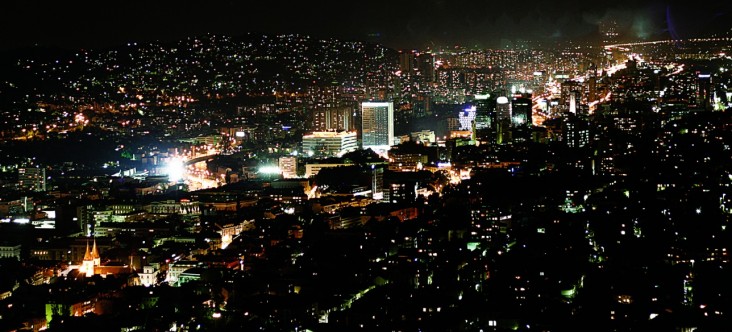
The 1992-95 war in Bosnia and Herzegovina (BiH) left the country's electrical distribution system in ruins, leaving people in towns and villages across the country without electric power for lighting and heat.
One of USAID's first interventions in BiH was to help rebuild the country’s energy infrastructure in 1996. From the bigger cities to the tiniest of villages throughout the country, USAID provided assistance to repair power lines, rebuild substations, and repair and bring power plants back online.
But USAID assistance in the BiH energy sector did not stop there. After the infrastructure was re-established, USAID launched the Regulatory and Energy Assistance Project (REAP) in 2007 to help reform the electricity sector according to the standards prescribed by the Energy Community Treaty signed between the countries of southeast Europe and the European Union. BiH ratified the treaty in 2006.
The project helped BiH establish regulatory commissions for electricity, unbundled transmission from the three vertically integrated utilities to form the Independent System Operator and Transmission Company, and contributed to the enactment of electricity reform laws.
“The reform of the energy sector in Bosnia and Herzegovina started with the support of USAID, not only post-war reconstruction of the electrical distribution system, but also technical support in creating and realizing an open, competitive energy market,” said Zdenko Vukic, executive manager for operations and maintenance at Elektroprijenos Utility Company.
USAID also provided technical assistance to help BiH develop its electricity market design, and to design and develop detailed market processes to enable smooth operation of the market and ensure supply for all customers in BiH. The efforts are designed to bring the country in line with the high standards in the European Union Directives that, over time, became obligatory for BiH.
The USAID energy policy project also initiated the first load research done in Bosnia and Herzegovina. The results of the research will benefit both the electricity companies and customers because it will help them plan and project demand, and set tariffs accordingly.
“With USAID, we've gathered invaluable experience that helped us better understand the energy market and all processes that need to be implemented in the future,” Vukic said.
Another major achievement was the joint effort undertaken in 2011 by USAID and the State Regulatory Commissions for Electricity and the Independent System Operator to develop and issue the Congestion Management Rule. This rule prescribes the auctioning of available transmission capacity at the borders between BiH and neighboring countries. Since 2011, implementation of this rule has earned BiH revenue of more than $8 million from auctions of cross-border capacities.
Working in an environment such as BiH is not easy. Eighteen years after the war, the country is still wracked by ethnic disagreements, and economic progress is constantly blocked by politics. But USAID electricity sector assistance represents an instance when professionalism overcame political obstacles. USAID's approach—working closely with all parties to provide equal and unbiased assistance to all—was key to the successful engagement and progress achieved in BiH.
Through its Regulatory and Energy Assistance Project, USAID was the main donor involved in energy policy reform in BiH, helping the country integrate into regional and European Union energy markets. The project closed in 2013.







Comment
Make a general inquiry or suggest an improvement.